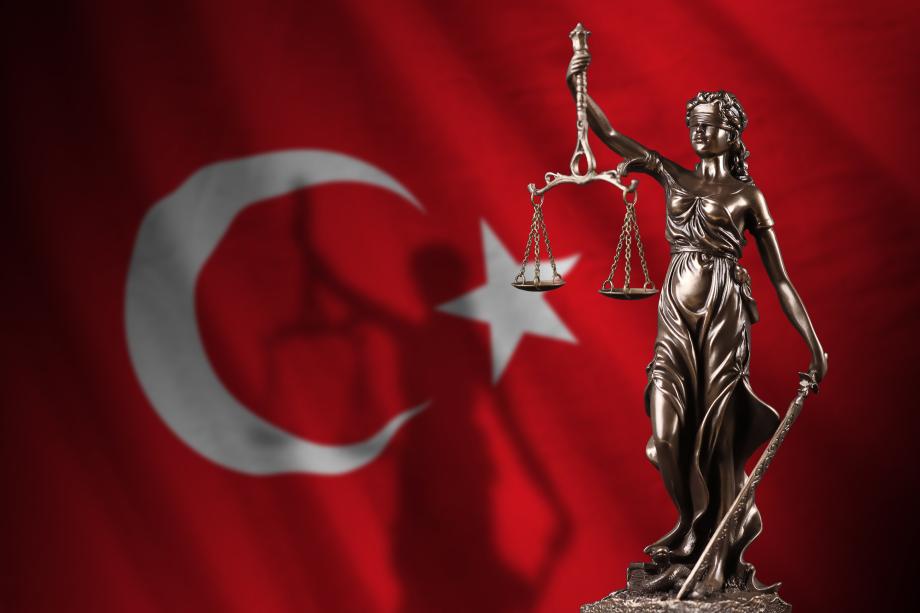Turkish Law on Disinformation: Another Brick in the Wall

Turkish government pushed for the adoption of the Disinformation Law in October 2022. It was criticised by opposition parties, as well as international bodies such as Venice Commission, due to its vague definition of what constitutes disinformation and the fact that the law has introduced prison sentences for individuals that are accused of spreading disinformation.
Prior to June 2023 parliamentary and presidential elections, at a time when Turkish president Erdogan is trailing behind in polls, this is seen as another attempt to strengthen his grip on information space and stir the votes in his direction. Considering that the AKP government has been actively using several sections of the Turkish Penal Code to jail opposing voices, especially journalists, this law seems more like using the opportunity to legislate on the topic that is being considered crucial for Western democracies at the moment. So why not use the opportunity to have yet another tool at his disposal to shut down criticism?
It may seem that Erdogan would do just fine without this last piece of legislation. Politicians, journalists, activists or even minors posting criticism on social networks have already been prosecuted on the account of insulting the presidency under the Penal Code, Article 299, which envisages 4 years-long imprisonments, even more, if the insult is delivered in the public sphere. Official judicial statistics for 2021 alone show that almost 34 thousand cases were opened based on Article 299. In December 2022, the Istanbul Court delivered the verdict against the mayor of Istanbul Ekrem Imamoglu, sentenced him to prison for more than 2 years and banned him from politics for insulting the High Electoral Commission by calling the decision of the Commission decision “foolish”.
Anti-terrorism provisions (Article 314 of the Turkish Penal Code and Anti-Terrorism Law) are used even more frequently. The key problem of anti-terror legislation is the lack of legal definitions, which implies its usage and applicability to certain cases solely on the judicial branch. Official statistics show that their use by public prosecutors has been increasing. In 2020, there were almost 30 thousand inmates in prisons sentenced on terrorism charges.
Judiciary as another arm of the executive branch
During the AKP rule in Turkey, the autonomy of the judicial branch has been diminished. Judges ruling in line with the government narratives have been promoted. Those ruling against them have been sent to eastern provinces at best, which is the traditional way of dealing with disobedient bureaucrats in Turkey and was for instance the fate of the first judge heading the panel in the case opened against the mayor of Istanbul.
The grip of the AKP government over the judiciary is evident through the lack of separation of powers when it comes to judicial autonomy. Since the 2017 constitutional amendments, Turkey´s Board of Judges and Prosecutors (HSK) is presided over by the Minister of Justice and no judges and prosecutors are elected by their peers anymore. All members of the Board are appointed by the President or elected by the AKP majority in the parliament. The lack of independence of the judiciary and the separation of powers was criticised by the UN special rapporteur, which pointed out that the law governing HSK does not comply with the international treaties Turkey is part of.
Another issue worth mentioning is that following the 2016 failed coup d´etat up to 160 thousand state employees, including 33,000 police officers and 4156 prosecutors and judges, were dismissed. Within the judiciary, the sudden lack of judges prompted internal transfers, often resulting in a lack of experience in the assigned specialisation of the judges.
what brings new disinformation law onto the table for the Turkish government?
During the times when disinformation phenomena represent such a threat to Western democracies, that individual countries, European Commission and NATO are taking active roles in combating it, for non-democratic regimes, this is an opportunity that should not be lost. The need to legislate is already recognized - why not use it as a pretext to further crack on the opposition?
In Turkey, where most of the mass media are pro-government, social media have been the most important forum for debate. The law on disinformation is widening the space for cracking down on dissent and opposition by the Turkish government, by making an offence to disseminate false information under certain conditions. The law adds new Article 271a to the Turkish Penal Code, which says that “any person who overtly disseminates false information contrary to the facts about internal and external security, public order, and public health, with the motive exclusively to create distress, fear, and panic among the public and in a manner conducive to disturb public peace, shall be sentenced to imprisonment from one to three years.” The terms such as “overtly disseminating” or “disturbance of public peace” are too broad and vague, which may lead to arbitrary and politically motivated actions.
At this point, it must be clear to social media users that it is even more dangerous to post anything on social media that may be labelled as disinformation. So not just posting criticism of the president and his actions directly, but anything that would not be in line with government narratives may be punishable by a prison sentence.
Actions against disinformation and malign information operations are necessary. However, the tools adopted to counter them must not eliminate freedom of speech, they must be carefully tailored, and proportionate to protect human rights and freedoms.

Research Fellow, Centre for Democracy & Resilience